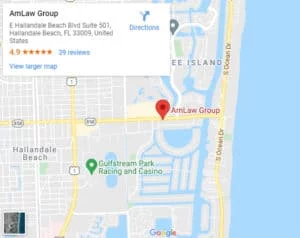Top 3 Tips To Improve Your Franchise Business Model
Attracting Foreign Franchisees: Structuring Your Franchise to Appeal to Foreign Investors
The franchise business model is acquiring popularity among overseas investors, specifically those interested in immigrating to the U.S. or doing business in this country on a long-term basis. It is increasingly easy to set up and launch a new business remotely—and more and more people are directing their efforts at franchises to do so. Being a part of an existing, proven, and well-organized business model appeals to investors who might be new to the U.S. market than struggling with launching a new one on their own.
This applies particularly to foreign investors looking for stable financial returns on the American market. However, in addition to financial returns, many are looking for ways to leverage their business endeavors in the U.S. to serve as the basis for acquiring a visa or green card to reside in the United States with their families. In this article, we attempted to delineate the most popular visa categories for entrepreneurs—and how structuring your franchise offerings so they most closely correlate to these categories would help you increase your appeal in the eyes of foreign franchisees: Buying into a franchise can be financially rewarding, but doing so while also allowing the investor to move the U.S. and his family significantly raises the appeal of a franchise in the eyes of these investors.
There are three main types of investor and business visas relevant to franchising. Each type has its specifics and legal requirements that affect the requirements to the businesses suitable for that purpose. We list these options below in the order of increasing investment amounts and complexity.
E-2 Visas: The Default Option for Franchises
Historically E-2 visas have been the workhorse of the franchise world: most visas for franchisees have typically been E-2’s. The E-2 nonimmigrant investor visa is the most popular type of visa among EU residents, investors from Kazakhstan, Ukraine, and many more countries that have an E-2 treaty agreement with the U.S. in effect. There are, however, many large countries that do not have an E-2 treaty in effect, including China, Russia, and India. The requirements regarding the business for this type of visa are quite flexible, making nearly any business appropriate for this category. The biggest requirement is committing $100,000 or more to a newly formed or existing U.S. business. The investor must also prove the source of these funds to show they were legally earned or gifted. It is not required to create jobs (although it is always a plus and usually a necessity) nor must the investor have any particular experience or minimum education. The investor is able to get E-2 status for his spouse (who receives work authorization) as well as any minor children up to 21 years old. For these reasons, E-2 visas are very popular among those who are eligible to apply for them.
L-1 Visas: Alternative Available to All Nationalities
Unlike the E-2, the L-1 Visa is available to absolutely any nationality. In this respect, it is more accessible to foreign investors and entrepreneurs. However, there are other requirements that make it a bit more difficult to qualify for than the E-2. The denial rate has historically been higher for L-1s as opposed to E-2s. That sometimes dissuades investors. In addition, the investor must show that he has a sufficiently large company in his home country where he worked as an executive. As for the U.S. entity, he must show that he will hire at least 6 (ideally more) employees within the first year of operations in the United States. Of these 6 employees, at least 2 need to be managers who have higher education and oversee other employees in the company. However, unlike the E-2, it is a bit easier to convert the L-1 to a green card provided the U.S. company satisfies certain requirements. As for the minimum investment level, there is no minimum investment amount required by law. However, given the larger number of employees needed, the required funds generally exceed those of the E-2, meaning total investments of $200-300,000 are generally needed. Similar to the E-2, the L-1 visas also allow spouses and children up to 21 to apply and enter the U.S. together with the primary investor.
EB-5 Green Cards: Now is the time
Unlike the E-2 and L-1, the EB-5 Visa provides permanent residency (green card) to applicants. At the time of this writing (November 2021) EB-5 is an extraordinary option for investors looking to get a green card, but it likely won’t last for long. In June 2021 a federal court rolled back the investment amount to $500,000 after it had been raised to $900,000 in November 2019. However, Congress and the White House are eager to increase the amount. It’s likely it won’t go up to $900,000, but $700,000 seems to be the consensus number. However, no one will know until Congress acts later this year—although it’s possible they won’t make a decision until 2022.
For this reason, investors are eager to move quickly to take advantage of this fortuitous situation and invest at an unbelievable price of $500,000 in a business to acquire a green card. More importantly, about the same time that the price was reduced to $500,000, the Regional Center pilot program expired—and to this day it has not been extended. The vast majority of investors historically invested in regional center projects, but with those temporarily suspended until the program is renewed by Congress, franchises remain the only reliable option for EB-5 investors.
The EB-5 requires the creation of 10 new jobs in addition to the investment of a minimal amount of money. The investment amount depends on the location of the business. Businesses located in a Targeted Employment Area (also known as a TEA) with a high unemployment rate require a lower amount of investment compared to those outside the TEA. Currently, the TEA level is $500,000. If the project is outside that area, then the minimum amount is $1,000,000 per investor.
Tips for Expanding Your Business With Foreign Franchisees
If you are ready to expand your business with foreign franchisees, we would suggest the following based on our years of experience:
- Try to structure offerings such that they could fall as close as possible into one or more of the general visas requirements laid out below. For example, an option that requires $500,000 but does not create 10 new jobs would be much less appealing than one that creates maybe 8 jobs but requires perhaps only $300,000.
- Try to offer differing deal structures to satisfy as many of the various visa options described above.
- Consider offering management services. A great number of foreign clients for a number of reasons would prefer support on the management side, including full turn-key management services, that would distance them from the need to be involved in day-to-day management.
Talk to an Experienced US Business Immigration Attorney
As the world becomes increasingly globalized, structuring franchise offerings for foreign investors will increasingly become a necessity for franchisors. Tailoring your options to best meet their interests should be of interest to all franchisors to expand the appeal of their offerings.
Our team of reliable and experienced business immigration attorneys can help you with your business and immigration needs. To improve your franchise business model. schedule a consultation with our Miami immigration law firm today!
Ask A Business Immigration Lawyer

Start your new future in the U.S. now!
Related Posts
L-1 Visa Processing Changes: What It Means for Spouses and Families (2025 Update)
E-2 Visa Renewal: The Essential Guide

Miami Office
AmLaw Group
1920 E Hallandale Beach Blvd Suite 709 Hallandale Beach, FL 33009
Dreaming of Living in the U.S.? Our Business Immigration Attorneys Can Help!
Copyright 2025 AmLaw Group - All Rights Reserved | Powered by Advantage Attorney Marketing & Cloud Solutions




